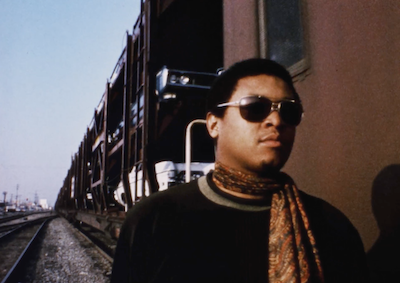Founded in South Los Angeles in the wake of the police violence and societal oppression that initiated the Watts Rebellion of 1965, the Watts Writers Workshop (1965-1973) represented a high-profile cultural experiment that left an indelible imprint well beyond the borders of the city. Conceived by Academy Award-winning novelist and screenwriter Budd Schulberg (On the Waterfront) as a response to the Rebellion in Watts, the Workshop was developed to provide a platform and opportunities for African American communities through creative writing. Soon after launch, the gifted authors and innovative poems and prose that emerged from the Workshop would draw critical acclaim and law enforcement attention for articulating demands for social justice and bringing forth all-too-accurate descriptions of the gross injustices impacting Black Americans and other communities of color.
Poems from the Watts Writers Workshop were initially published in Time magazine and several anthologies edited by Schulberg, including From the Ashes—Voices of Watts (1967). In addition to several network television specials, a pair of local Los Angeles television programs, produced in the latter half of the 1960s further document the Watts Writers Workshop via readings by poets and authors, with comments by Schulberg. These public affairs specials, Voicepoint: The Watts Writers Workshop (1967) and Tell it Like it is!: The Watts Writers Workshop (1968), feature dynamic readings by artists including Sonora McKeller, Ojenkie (Alvin Saxon Jr.), Blossom Powe, Jules Ramey, Marguerite Terrell, Quincy Troupe, Art Wilson, and others.
Daniel Widener, UC San Diego professor and author of Black Arts West: Culture and Struggle in Postwar Los Angeles (2010), will introduce and contextualize these recently preserved programs within the framework of the rich and complicated history of the Watts Writers Workshop. Acclaimed poet Kamau Daáood and Ojenke (Alvin Saxon Jr.), one of the original poets of the Watts Writers Workshop, will join Prof. Widener in conversation. Daáood will also perform a reading of his work.
Program notes by Mark Quigley, John H. Mitchell Television Curator.
Voicepoint: “The Watts Writers Workshop”
U.S., 10/1/1967
This studio-bound, videotaped production features readings and recitations by numerous members of the Watts Writers Workshop with commentary by Budd Schulberg.
DCP, b&w, 30 min. A KCET Production. Executive Producer: Dar Reid. Producer: Francis Roberts. Director: Allan Muir. Writer: Francis Roberts. Preserved by the UCLA Film & Television Archive from an original 2 in. videotape. Video transfer at DC Video. Engineering services by David Crosthwait. Use courtesy of KCETLink.
Tell It Like It Is!: “Watts Writers Workshop”
U.S., 7/30/1968
Actor Godfrey Cambridge and Harry Dolan, executive director of Douglass House Foundation, present this filmed program that sets readings by the Workshop poets to location footage of life in Watts.
DCP, color, 30 min. Produced in cooperation with the Douglass House Foundation and the Watts Writers' Workshop. Host: Godfrey Cambridge. Narrator: Harry Dolan. Digitally preserved by the UCLA Film & Television Archive from a 16mm composite print.






 Mobile Navigation
Mobile Navigation

